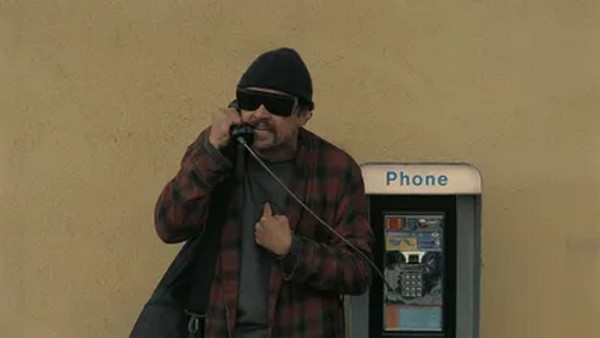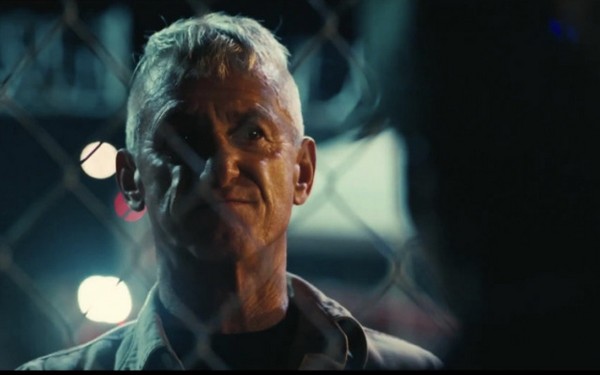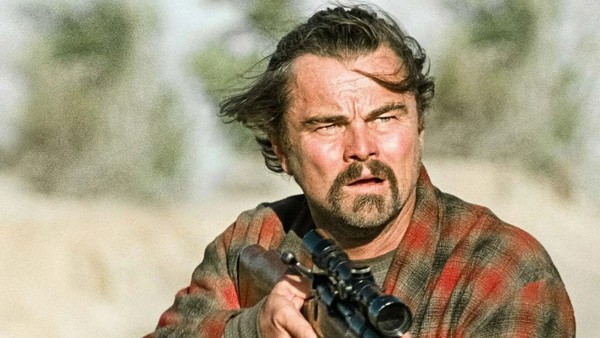 Several forces vie for control of a young woman, mainly her father, in one of the year’s best films, Paul Thomas Anderson’s wildly entertaining One Battle After Another.
Several forces vie for control of a young woman, mainly her father, in one of the year’s best films, Paul Thomas Anderson’s wildly entertaining One Battle After Another.
Paul Thomas Anderson is one of the most interesting filmmakers working today. Every one of his films is wholly different, all showing incredible skill in the profession. While I’m personally not as high as others, I always look forward to what comes next. I’ll admit, I straight-up did not like Licorice Pizza and Phantom Thread, although I appreciate what he did for those. But Magnolia and There Will Be Blood are perfect masterpieces. One Battle After Another joins that pair as a massive undertaking that pays off immensely on every level. It’s a large film, Anderson’s largest perhaps. Depending on how you look at it, the size of characters and stories balanced and flowed perfectly in Magnolia, or the setting and world of There Will Be Blood could be contenders for said title. Either way, it’s a film on a scale not often seen for Anderson, but just as personal and intimate as Boogie Nights or Punch-Drunk Love. After all, each film is an idiosyncratic voyage of self-discovery, no matter the varied trappings overlaid.
One Battle After Another, adapted from Thomas Pynchon’s Vineland (Anderson’s second adaptation of his work after Inherent Vice), is a hard film to describe. It’s deceptively simple on top, but wonderfully complex underneath. The skinny: Leonardo DiCaprio’s Bob is on the edge of freaking out and breaking down entirely. His sixteen-year-old daughter has vanished. He’s on the hunt for her as several other forces move in and around one another. His past as a violent revolutionary has caught up to him, and now he and dozens of others are on a running path to save themselves and get what they need. Watching all these entertaining, wild, and interesting characters and situations come and go around another is an intense, energetic blast, peppered with surprising and affecting violence, and a darkly humorous through line. Of course, there is so much more going on, but I dare not give the film’s surprises.
When it comes down to it, One Battle After Another is just that: one incredibly well-put-together sequence after another; battles personal and external, filmed with an energetic zest that runs its 160-minute runtime as if it’s merely 80. I’m reminded of Mad Max: Fury Road. On the surface, it’s a simple chase, heavy in themes, yet not bogged down with direct dialogue, but in action and style. It flitters in the viewer’s brain, where the whole of the film weighs as it comes together and sinks in as the credits roll and the audience catches its breath. It’s big and breathtaking, but with gravitas from the intense focus on the personalities at the center of the whirlwind.
 Anderson’s writing is sublime, easily setting up characters, stakes, and flow. He crafts a realized world. One that, despite the stakes and nastiness, is supremely funny, but also anxiety-ridden. Anderson has always done well, deftly sliding between tones with ease. One Battle After Another is a prime example, slipping between extreme action, anxiety, humor, deft drama, and everything in between in an extraordinary natural manner, sometimes within the same line. Editor Andy Jurgensen uses Anderson’s skill to draw it all together, sliding and cutting through the largess with a balance and pep. It helps Anderson and Jurgensen have an incredible cast to bring the page to life with a glorious glow.
Anderson’s writing is sublime, easily setting up characters, stakes, and flow. He crafts a realized world. One that, despite the stakes and nastiness, is supremely funny, but also anxiety-ridden. Anderson has always done well, deftly sliding between tones with ease. One Battle After Another is a prime example, slipping between extreme action, anxiety, humor, deft drama, and everything in between in an extraordinary natural manner, sometimes within the same line. Editor Andy Jurgensen uses Anderson’s skill to draw it all together, sliding and cutting through the largess with a balance and pep. It helps Anderson and Jurgensen have an incredible cast to bring the page to life with a glorious glow.
Leonardo DiCaprio gives his most spirited, insane, go-for-broke, and straight-up funniest performance since The Wolf of Wall Street. He screams, yells, freaks out, runs, falls, bickers, freaks out more in a building intensity of man continually on edge for cracking completely. DiCaprio is a gifted comic actor, playing with building paranoia to breaking any last semblance of the sane mind, akin to masters like ’80s Tom Hanks and Gene Wilder.
Driving the opposition, Sean Penn delivers a soon-to-be iconic Col. Lockjaw with an obsessive, strange, tic-laden performance. It’s a deftly controlled caricature of a hard-boiled military persona. He’s funny to watch (each appearance led to nervous laughter), but utterly dangerous to deal with; a massive threat in a wild card.
And let’s not forget Benecio Del Toro’s sensei, a measured father figure to Willa against the unbalanced Bob; the reveals of his secrets and how he plays into the plot, along with how Del Toro acts his own weird and wild enlivens an already glittering picture. But his corner of the picture hones in on the fight and revolution, struggles of POC in a supremacist America. There’s so much to dig out here, but I can’t go into it. Regina Hall continues her amazing streak of undersung character performances (including the recent Caught Stealing). Her eyes here are telling their own heart-wrenching story. I’d be remiss to leave out Teyona Taylor, giving a firebrand performance as Willa’s revolutionary mother, full of spark and vigor; just not for her daughter.
 At the center of it is Willa. As the focus of everyone’s search, she’s no mere MacGuffin. Willa is the grounding presence to a cadre of maniacs that surround her. Actor Chase Infiniti, oh boy, what a name!, plays Willa all with a quiet intensity, wearing all the confusion and often pain on her face. She’s new to the scene, but holds just as strongly as the established powerhouses around her.
At the center of it is Willa. As the focus of everyone’s search, she’s no mere MacGuffin. Willa is the grounding presence to a cadre of maniacs that surround her. Actor Chase Infiniti, oh boy, what a name!, plays Willa all with a quiet intensity, wearing all the confusion and often pain on her face. She’s new to the scene, but holds just as strongly as the established powerhouses around her.
All the forces come together in the most nailbiting, breathless climax I’ve experienced in quite a while. Gasps of suspense and near tension release giggled across the screening. Fully arresting from start to finish. I love every moment, thrilled and cheered, but I dare not spoil a second. It comes together with a perfect sense of timing and pressure. It’s a tension building to a fever pitch.
Paul Thomas Anderson creates a new masterpiece. Sheerly exhilarating with a stable of wild performances, sequences, and moments (I’ve not even touched on the white supremacist group weaved through the narrative). DiCaprio and Penn work at the top of their game, with newcomer Infiniti declaring herself a star. One Battle After Another might be Anderson’s most straightforward film, but it’s no less than the rest. Thrilling, wild, and unexpectedly hilarious, One Battle After Another is one of the year’s best films.
